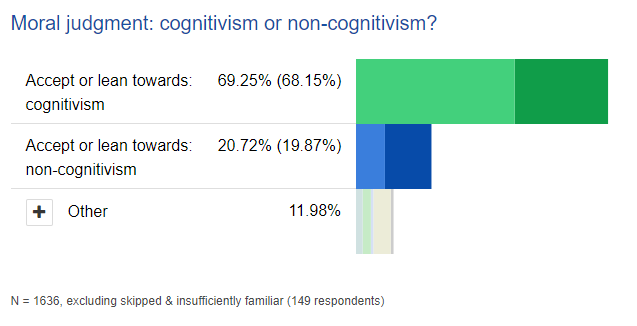Ethics: Inventing Right and Wrong by John Mackie (1977)
I bought this book a while ago, but it took me a while to read it because I was biased against its cover. I didn’t think any Penguin book with an orange spine could be a serious work of philosophy – those are usually published by snooty university presses. I was wrong; this is a serious book by a serious thinker. John Mackie was an Australian philosopher who fought in the second World War and later taught at Oxford. He published an article in the 1940s that was the basis for the first part of this book, and that article advanced one of the most influential ethical arguments of the 20th century.
The main thesis of the first part of the book is that typical thinking about morality is dead wrong. More specifically, he argues that when ordinary speakers make moral claims (1) they are typically making propositions (that is, statements that are either true or false) and (2) they believe that these statements are about objective facts rather than a person or a group’s opinions or feelings. While the first part of his claim may seem straightforward, it goes against some ethical theories that were popular in the mid-20th century that held that ordinary ethical statements aren’t making propositions and are instead, for example, expressing emotions (emotivism) or making commands (prescriptivism), and therefore aren’t capable of being true or false.
His crucial claim is that (3) there are no objective moral values. (He also thinks that there are no other types of objective values, but moral values are the focus of his argument.) By objective moral values, he means “intrinsically prescriptive entities” that are “part of the fabric of the world.” In other words, objective moral values are facts, which, if known would give everyone a reason for acting one way or another.
The conclusion from claims (1)-(3) is (4): all ordinary positive moral statements (for example, “X is good” or “Y is bad”) are false. This line of argument, which has come to be known as the “error theory,” continues to be very influential in metaethical thinking. For more detail on the argument, and particularly the support for claim (3), I’d really encourage you to read the first chapter of his book. It’s only 30-some pages, and it can probably be found for free somewhere.
I also got a lot out of the rest of the book which shows that I can’t judge a book by its table of contents, let alone its cover. Based on the chapter titles, I expected the book to transition into a basic survey of ethics after making the case for the error theory, but that’s not what it does. Instead, chapters 2 through 4 elaborate on and expand the line of thinking begun in the first chapter, and the rest of the book (surprisingly to me) sketches out a normative ethical system that’s consistent with the metaethical error theory.
Overall, the book clarified or expanded on many issues that my other readings only touched on briefly or not at all. Perhaps most significantly, it helped me understand how normative ethical positions can be largely independent of metaethical positions. It also made some very clear and helpful distinctions between conceptual and factual analyses and between hypothetical and categorical imperatives, as well as including a careful discussion of the relationship between free will and moral responsibility.
I’d strongly recommend the entire book to anyone interested in these topics. The writing is extremely clear and largely nontechnical. It probably helps to have some basic knowledge of the theories that he’s responding to in the first part of the book (emotivism and prescriptivism) as well as the normative theories that he draws on in the latter part of the book (utilitarianism, Kantian deontology, social contract theory, and value ethics). You can get a sufficient background on those topics from Wikipedia or the sources given in my first post.



